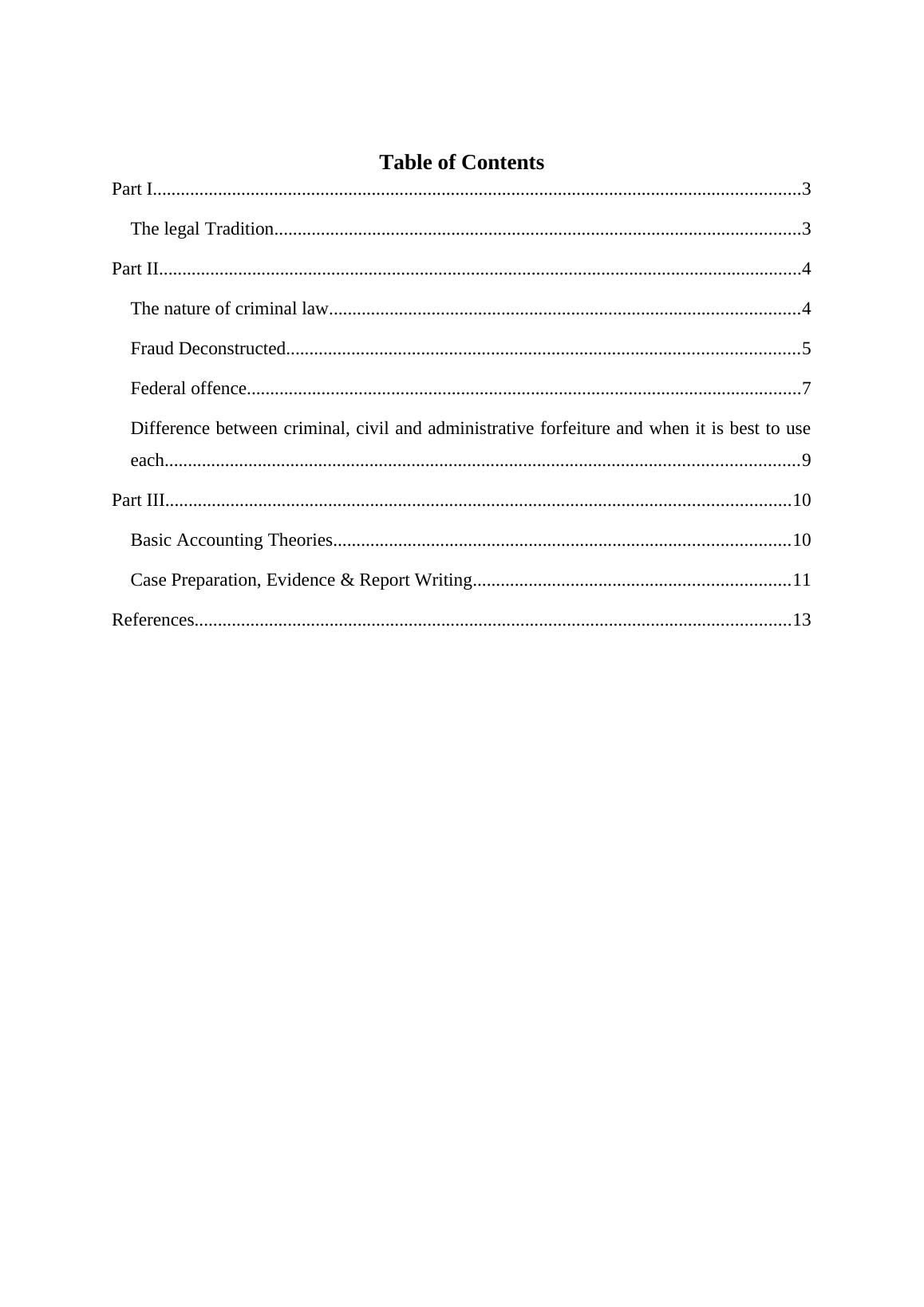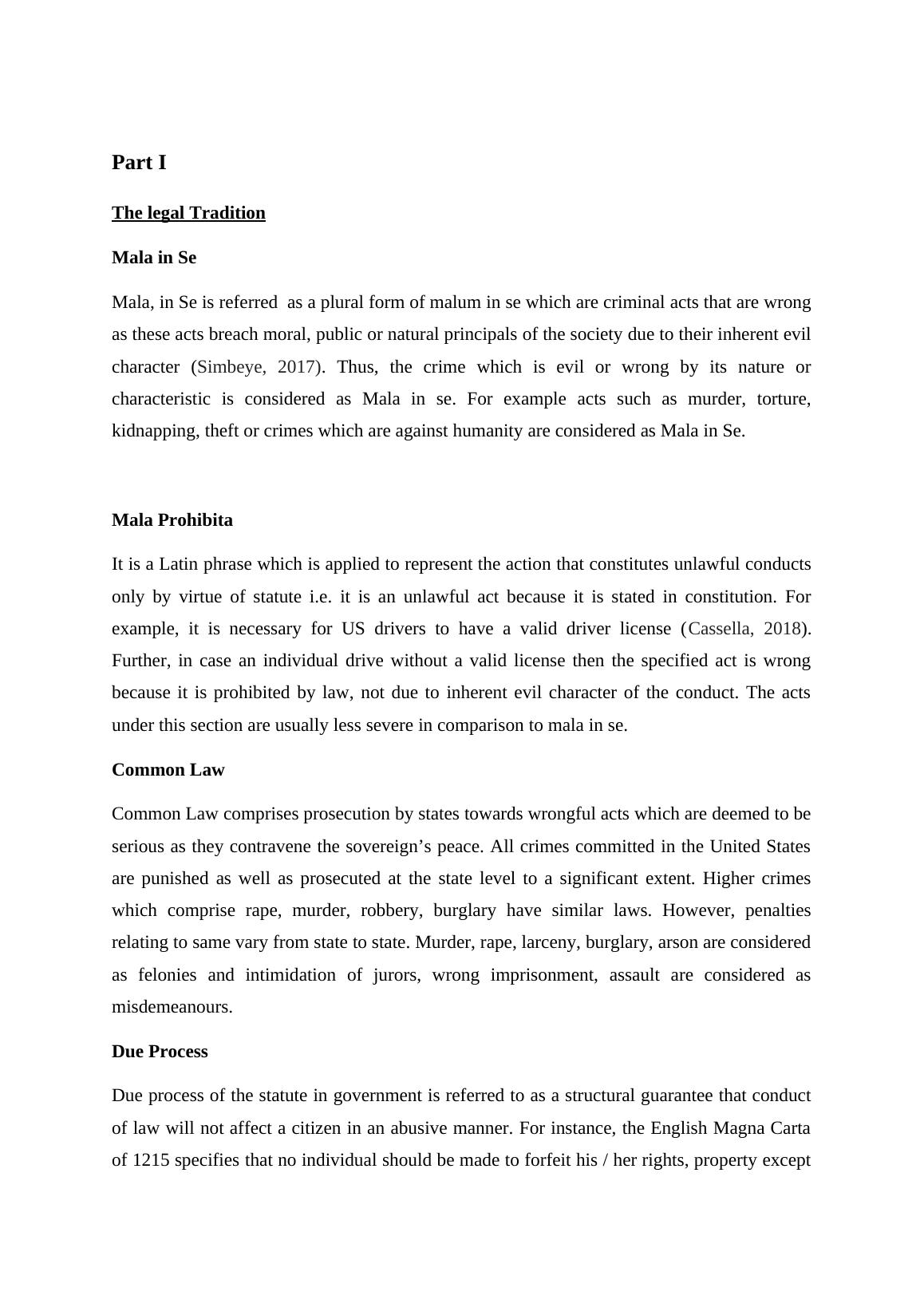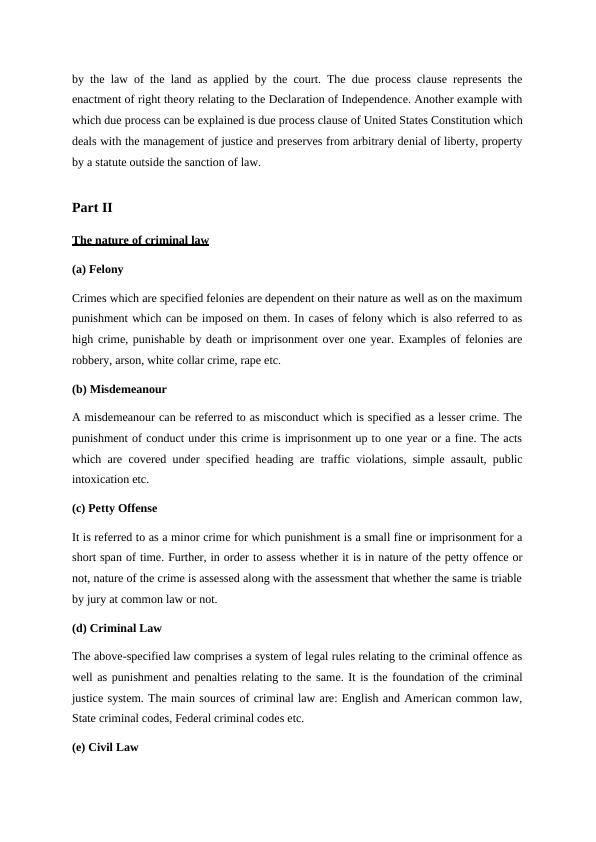Legal Tradition, Criminal Law, Fraud Deconstructed, Federal Offence, Difference between Criminal, Civil and Administrative Forfeiture
This text discusses the theories, typologies, legal aspects, investigative tools, and analytic techniques related to white-collar crime. It also covers abuse-of-trust crimes, corporate corruption, international terrorism, and the USA Patriot Act of 2001. The assignments for Week 8 include using the internet for investigative purposes and preparing warrant applications and case scenario summaries. The laws applicable to white-collar crime, including the legal tradition, nature of criminal law, and fraud, are also discussed.
Added on 2023-04-22
About This Document
Legal Tradition, Criminal Law, Fraud Deconstructed, Federal Offence, Difference between Criminal, Civil and Administrative Forfeiture
This text discusses the theories, typologies, legal aspects, investigative tools, and analytic techniques related to white-collar crime. It also covers abuse-of-trust crimes, corporate corruption, international terrorism, and the USA Patriot Act of 2001. The assignments for Week 8 include using the internet for investigative purposes and preparing warrant applications and case scenario summaries. The laws applicable to white-collar crime, including the legal tradition, nature of criminal law, and fraud, are also discussed.
Added on 2023-04-22
End of preview
Want to access all the pages? Upload your documents or become a member.




